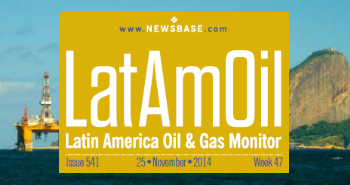US ‘grabs Iranian fuel en route to Venezuela’

The US said on August 14 it had confiscated four Iranian fuel shipments bound for Venezuela.
The American success goes some way to relieving the embarrassment felt in Washington when in May Iran successfully sent a flotilla of gasoline-laden tankers to fuel-starved Venezuela which, given that it is in common with the Islamic Republic enduring crushing US sanctions, has become a strategic ally to Tehran.
Meanwhile, there has been a slight growth in speculation that US President Donald Trump could seek to do a foreign policy deal with Iran before his bid for re-election in November, but the evidence that secret talks are under way to pave the path to that eventuality remains thin.
Speaking at a White House news conference following the announcement that the Iranian fuel had been seized, Trump said Iran should not be sending cargoes to Venezuela and added that the seized shipments were now bound for Houston, Texas and suggested they may have already arrived.
“They’re going to Houston. And, they’re there,” Trump said. “We’re moving them, and moved, to Houston.”
The US Justice Department said the seized cargo was now in US custody “with the assistance of foreign partners”. It added that the amount confiscated from four tankers was approximately 1.116mn barrels of fuel, making it the largest-ever US seizure of Iranian fuel.
Iran’s envoy to Venezuela Hojjat Soltani strongly rejected the US statement that it had grabbed the fuel, writing on Twitter: “Another lie and psychological war from the Imperialist propaganda apparatus of the US. Neither are the tankers Iranian nor do their owner or flags have anything to do with Iran.”
Outgoing envoy credited
The US State Department credited its outgoing special envoy for Iran for the seizure operation. “Our diplomacy, led by Special Representative for Iran Brian Hook, was able to both halt these shipments and assist the Departments of Justice and Homeland Security in executing a U.S. seizure order,” it said in a statement cited by Reuters. The State Department did not disclose what steps Hook, whose resignation was announced earlier this week, took to secure the seizure.
In July last year, Hook sent emails to the captain of a British-flagged oil tanker that was briefly seized by Iran in the Gulf, saying that the Trump administration was offering him several million dollars to steer the tanker to a country that would impound it on behalf of Washington.
The US has warned any ship owners and vessels involved in oil trade with Tehran and Caracas that they could be sanctioned.
US prosecutors filed a lawsuit in July to seize the gasoline aboard the four tankers, and a judge subsequently issued a warrant for seizure. Legal sources previously told Reuters that the cargoes could not be seized until they were in US territorial waters.
The owners of the four vessels agreed to have the fuel transferred so it could be shipped to the US, a US government source told the news agency on August 13. The warrant only covered the cargoes, not the vessels.
The four tankers that initially carried the cargoes were the Liberia-flagged Bella, Bering, Pandi and Luna. They are owned and managed by companies controlled by Greece-based firms Vienna LTD and Palermo SA.
The Justice Department added that, following the seizure, Iran’s navy forcibly boarded an unrelated ship in the Strait of Hormuz in an apparent attempt to exert pressure to recover the seized petroleum, and added that the US military’s Central Command published a video of it on August 13.
After Hook’s departure from his post, US Special Envoy for Venezuela and foreign policy hawk Elliot Abrams will add the Iran brief to his duties.
The developing alliance between the two foes of the US lately even saw an Iranian company open a supermarket in Caracas.




Follow us online